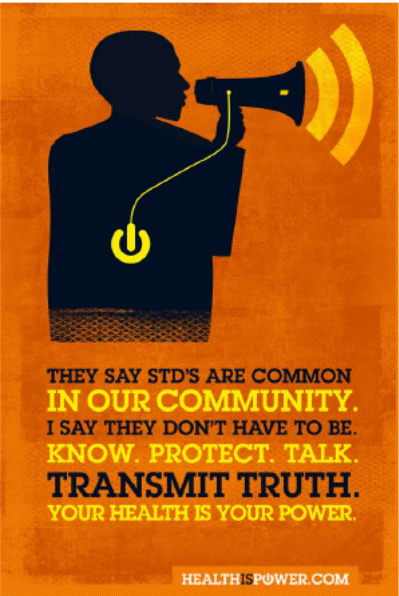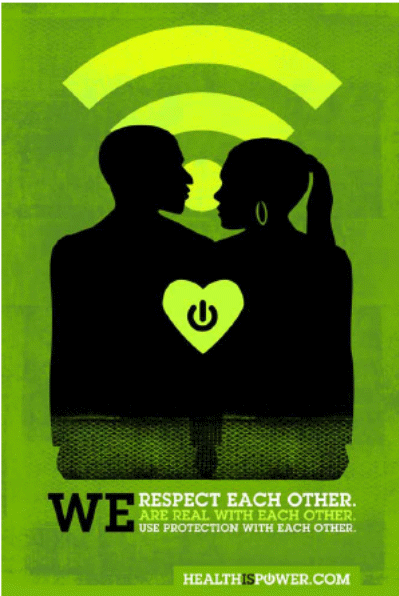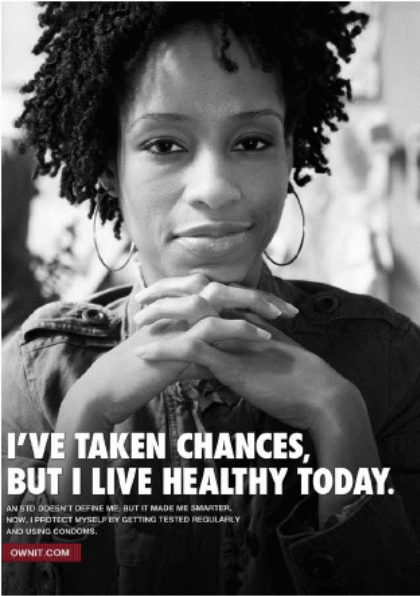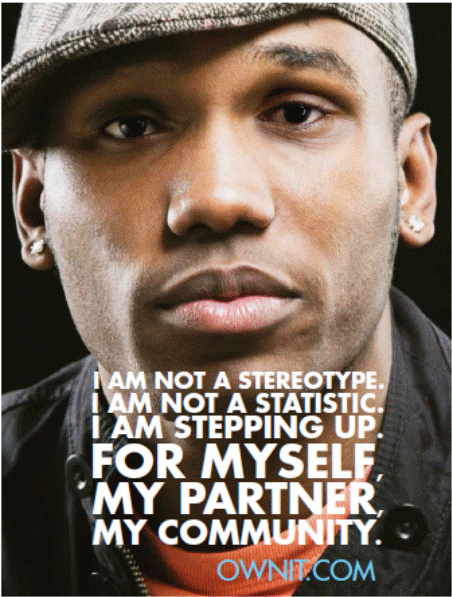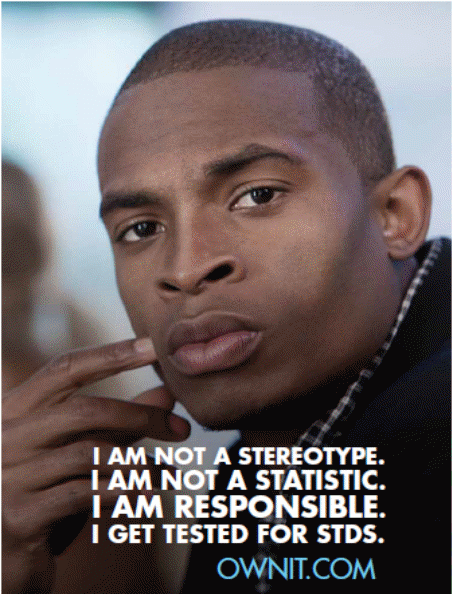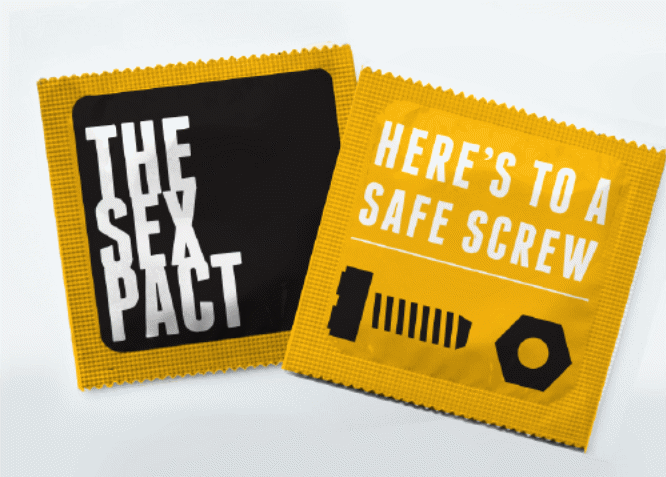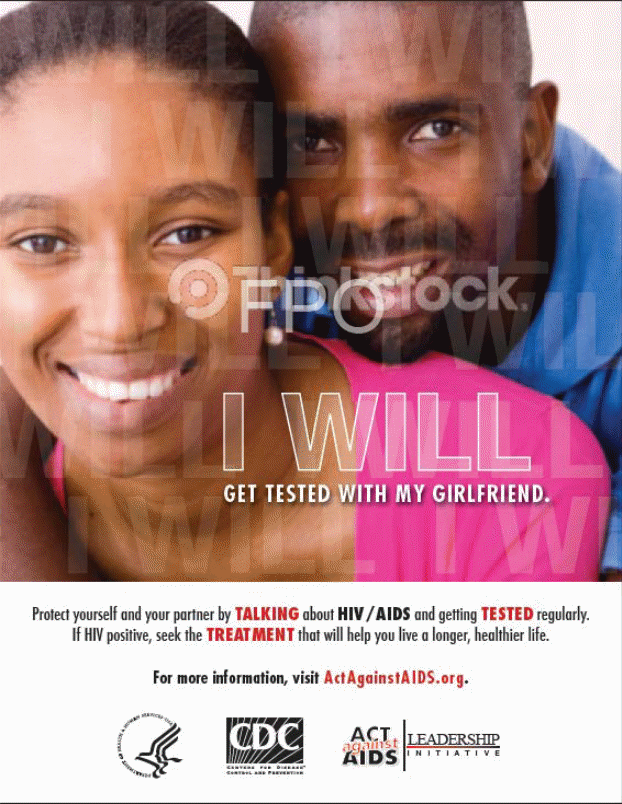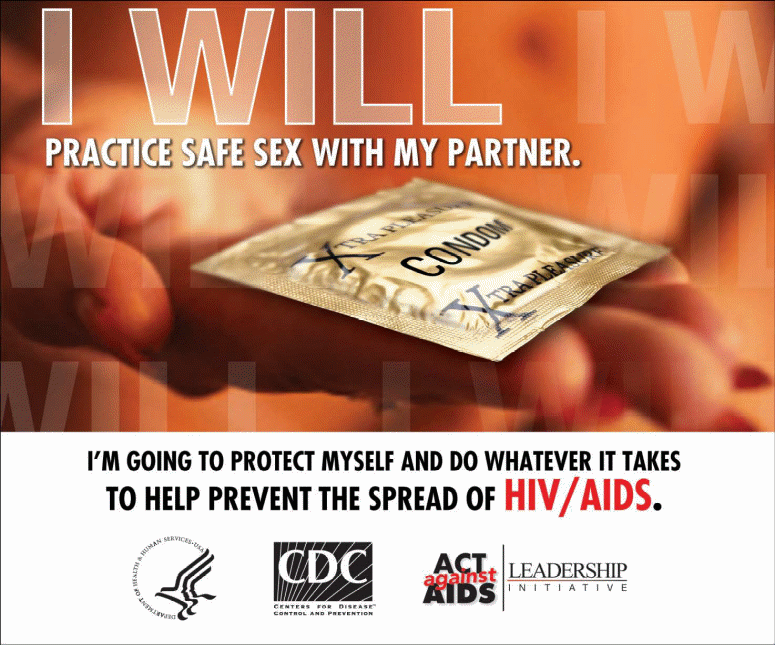African American Survey
CDC and ATSDR Health Message Testing System
African Amer - Attachment 4 - Survey 022513
African American STD Disparities Health Communications Project and Community Health Media Center Educational Campaign Materials Testing
OMB: 0920-0572
African American STD Disparities Health Communication Project
ATTACHMENT 4
Web-based Survey Instrument
READING LEVEL 8.9 (ASSESSED BY FLESCH-KINCAID)
Form Approved
OMB No. 0920-0572
Expiration Date: 2/28/2015
Web-based Survey Instrument
SCRIPT: We’d like to ask you a few questions about your background.
How many children (under age 18) live in your household?
None
1-2 children
3-4 children
5 or more children
Refused
What is your current occupational status?
Employed full time
Employed part time
Unemployed
Homemaker
Student
Retired
Disabled
Other
Don’t know/Not sure
Refused
Public reporting burden of this collection of information is estimated to average 30 minutes per response, including time for reviewing instructions, searching for existing data sources, gathering and maintaining the data needed, and completing and reviewing the collection of information. An agency may not conduct or sponsor, and a person is not required to respond to a collection of information unless it displays a currently valid OMB control number. Send comments regarding this burden estimate or any other aspect of this collection of information, including suggestions for reducing this burden to CDC/ATSDR Information Collection Review Office, 1600 Clifton Road NE, MS D-74, Atlanta, Georgia 30333; ATTN: PRA (0920-0572). |
Which of the following categories best describes your total, annual household income?
Under $20,000/year
$20,001 - $30,000/year
$30,001 - $40,000/year
$40,001 - $50,000/year
$50,001 - $60,000/year
$60,001 - $70,000/year
$70,001 - $80,000/year
$80,001 - $100,000/year
Over $100,000/year
Don’t know/Not sure
Refused
In what ZIP CODE do you currently live?
Five-digit ZIP CODE ______________
Now, we are going to ask you some questions about sexual health. Please remember that we are interested in your opinions and there is no right or wrong answers to these questions.
What does the term “sexual health” mean to you? (Open-ended question)
How important are the following actions to you for staying in “good sexual health”? |
Not At All Important |
Somewhat Important |
Very Important |
Refuse to Answer |
6a. Getting tested for sexually transmitted diseases (STDs) other than HIV |
1 |
2 |
3 |
9 |
6b. Getting tested for HIV |
1 |
2 |
3 |
9 |
6c. Talking with a health care provider about sexual health problems (like an STD) as they arise |
1 |
2 |
3 |
9 |
6d. Making thoughtful decisions about your sexual behaviors |
1 |
2 |
3 |
9 |
6e. Having a fulfilling sex life |
1 |
2 |
3 |
9 |
6f. Having a fulfilling sexual relationship |
1 |
2 |
3 |
9 |
6g. Talking about your STD status with new sex partner(s) |
1 |
2 |
3 |
9 |
6h. Using condoms with new or casual sex partners |
1 |
2 |
3 |
9 |
6i. Talking with a causal sex partner about using condoms |
1 |
2 |
3 |
9 |
6j. Talking with a main sex partner about a sexual health issue (like an STD) |
1 |
2 |
3 |
9 |
6k. Talking with a main sex partner about your expectations in the relationship |
1 |
2 |
3 |
9 |
6l. Doing breast/testicular self-exams |
1 |
2 |
3 |
9 |
6m. Avoiding or leaving an abusive relationship |
1 |
2 |
3 |
9 |
6n. Accepting people of all sexual orientations (heterosexuality, homosexuality, bisexuality) |
1 |
2 |
3 |
9 |
6o. Avoiding unplanned pregnancy |
1 |
2 |
3 |
9 |
|
Strongly Disagree |
Disagree |
Neither Disagree nor Agree |
Agree |
Strongly Agree |
Refuse to Answer |
7a. I would be more interested in reading about sexual health (e.g., relationships, wellness) than STDs |
1 |
2 |
3 |
4 |
5 |
9 |
7b. I trust information about sexual health or STDs from a government website (for example, CDC) |
1 |
2 |
3 |
4 |
5 |
9 |
People in my community would benefit from receiving messages or information about: |
Strongly Disagree |
Disagree |
Neither Disagree nor Agree |
Agree |
Strongly Agree |
Refuse to Answer |
8a. STDs |
1 |
2 |
3 |
4 |
5 |
9 |
8b. HIV |
1 |
2 |
3 |
4 |
5 |
9 |
8c. taking personal responsibility for preventing STDs |
1 |
2 |
3 |
4 |
5 |
9 |
8d. communicating honestly with one’s sex partners |
1 |
2 |
3 |
4 |
5 |
9 |
8e. having mutual respect in sexual relationships |
1 |
2 |
3 |
4 |
5 |
9 |
8f. getting tested for STDs/HIV |
1 |
2 |
3 |
4 |
5 |
9 |
8g. using condoms to prevent STDs/HIV |
1 |
2 |
3 |
4 |
5 |
9 |
8h. My community doesn’t need messages promoting sexual health |
1 |
2 |
3 |
4 |
5 |
9 |
8i. Accepting people of all sexual orientations (heterosexual, homosexual, bisexual) |
1 |
2 |
3 |
4 |
5 |
9 |
8j. Avoiding unplanned pregnancy |
1 |
2 |
3 |
4 |
5 |
9 |
8k. Having pleasurable sexual experiences |
1 |
2 |
3 |
4 |
5 |
9 |
How would you rate your risk of getting infected with an STD (including HIV)?
1 Very high
2 High
3 Average (neither high nor low)
4 Low
5 Very Low
6 Undecided/not sure
9 Refuse to answer
Have you ever been tested for an STD (other than HIV)? Remember you are not automatically tested for other STDs when you have an HIV test.
3 Yes
2 No
1 Don’t know
9 Refuse to answer
If you thought you might have an STD or HIV, would you know where to go for testing and treatment?
3 Yes
2 No
1 Don’t know
9 Refuse to answer
|
Never |
Occasionally |
Usually |
Always |
This does not apply to me |
Refuse to Answer |
12. In the past 6 months, how often have you used a condom for vaginal or anal sex with a casual partner? |
1 |
2 |
3 |
4 |
7 |
9 |
13. How often do you discuss with a new sex partner the need for both of you to get tested for STDs before having unprotected sex? |
1 |
2 |
3 |
4 |
7 |
9 |
14. How often do you talk with a new sex partner about waiting to have sex until you have known each other longer? |
1 |
2 |
3 |
4 |
7 |
9 |
15. How often do you ask a new sex partner if he/she has ever had an STD (like herpes or syphilis)? |
1 |
2 |
3 |
4 |
7 |
9 |
SCRIPT: The following questions are about 13 advertisements related to sexual health. You will be shown each ad one at a time and asked some questions. Then you will be asked a series of questions for each of five groupings of ads.
[ROTATE the order of the five concept groups]
[For each individual ad, ask:]
Please rate this ad, on scale of 1 (Hate It) to 10 (Love It) |
1 (Hate it) |
2 |
3 |
4 |
5 |
6 |
7 |
8 |
9 |
10 (Love It) |
Refuse to Answer |
16a. This ad, overall. |
1 |
2 |
3 |
4 |
5 |
6 |
7 |
8 |
9 |
10 |
9 |
16b. The way this ad looks (colors, images, graphics).
|
1 |
2 |
3 |
4 |
5 |
6 |
7 |
8 |
9 |
10 |
9 |
16c. The message in this ad. |
1 |
2 |
3 |
4 |
5 |
6 |
7 |
8 |
9 |
10 |
9 |
[For each of the groupings of ads, ask (Questions with an asterisk will not be asked for the Sex Pact Concept):]
|
Strongly Disagree |
Disagree |
Neither Disagree nor Agree |
Agree |
Strongly Agree |
Refuse to Answer |
17. These ads grabbed my attention. |
1 |
2 |
3 |
4 |
5 |
9 |
18. These ads were confusing. (Reverse code) |
5 |
4 |
3 |
2 |
1 |
9 |
19*. These ads said something important to me. |
1 |
2 |
3 |
4 |
5 |
9 |
20*. I learned something new by reading these ads. |
1 |
2 |
3 |
4 |
5 |
9 |
21. These ads used a fresh, new approach. |
1 |
2 |
3 |
4 |
5 |
9 |
22*. I trust the information in these ads. |
1 |
2 |
3 |
4 |
5 |
9 |
23*. I believe what these ads are saying. |
1 |
2 |
3 |
4 |
5 |
9 |
24. I would share these ads with others. |
1 |
2 |
3 |
4 |
5 |
9 |
25. These are important messages for people in my community. |
1 |
2 |
3 |
4 |
5 |
9 |
26. If I had an STD, these ads would make me feel accepted. |
1 |
2 |
3 |
4 |
5 |
9 |
27. These ads would make me feel bad if I had an STD. (Reverse code) |
5 |
4 |
3 |
2 |
1 |
9 |
28. These ads stereotype African Americans. (Reverse code) |
5 |
4 |
3 |
2 |
1 |
9 |
29. These ads were offensive. (Reverse code) |
5 |
4 |
3 |
2 |
1 |
9 |
30. Please explain what, if anything, was offensive (open-ended) |
|
|||||
[Specifically for the group of Health is Power ads, add these:]
|
|
|
Strongly Disagree |
Disagree |
Neither Disagree nor Agree |
Agree |
Strongly Agree |
Refuse to Answer |
31. The campaign name (Health Is Power) is appropriate for these ads. |
1 |
2 |
3 |
4 |
5 |
9 |
32. I would be motivated to go to this website (HealthIsPower.com) for more information. |
1 |
2 |
3 |
4 |
5 |
9 |
33. These ads would motivate me to take responsibility for my health. |
1 |
2 |
3 |
4 |
5 |
9 |
34. These ads would motivate me to take responsibility for my sex partner’s health. |
1 |
2 |
3 |
4 |
5 |
9 |
35. These ads would give me a reason to talk to a new or current sex partner about STDs. |
1 |
2 |
3 |
4 |
5 |
9 |
36. These ads would give me a reason to talk to others about STDs. |
1 |
2 |
3 |
4 |
5 |
9 |
37. These ads would give me a reason to use condoms. |
1 |
2 |
3 |
4 |
5 |
9 |
38. These ads would motivate me to talk to my sex partner about sex, pleasure, or fulfillment. |
1 |
2 |
3 |
4 |
5 |
9 |
39. These ads would give me a reason to be faithful. |
1 |
2 |
3 |
4 |
5 |
9 |
[Specifically for the Own It- BW (previously Look Beyond) ads, add these:]
|
|
|
|
Strongly Disagree |
Disagree |
Neither Disagree nor Agree |
Agree |
Strongly Agree |
Refuse to Answer |
40. The campaign name (Own It) is appropriate for these ads. |
1 |
2 |
3 |
4 |
5 |
9 |
41. I would be motivated to go to this website (OwnIt.com) for more information. |
1 |
2 |
3 |
4 |
5 |
9 |
42. These ads would motivate me to take responsibility for my health. |
1 |
2 |
3 |
4 |
5 |
9 |
43. These ads would motivate me to take responsibility for my sex partner’s health. |
1 |
2 |
3 |
4 |
5 |
9 |
44. These ads would give me a reason to talk to a new or current sex partner about STDs. |
1 |
2 |
3 |
4 |
5 |
9 |
45. These ads would give me a reason get tested for STDs. |
1 |
2 |
3 |
4 |
5 |
9 |
46. These ads would give me a reason to use condoms. |
1 |
2 |
3 |
4 |
5 |
9 |
47. These ads would motivate me to talk to my sex partner about sex, pleasure, or fulfillment. |
1 |
2 |
3 |
4 |
5 |
9 |
48. These ads would give me a reason to ask my new or current sex partner to get tested for STDs. |
1 |
2 |
3 |
4 |
5 |
9 |
49. These ads suggest to me that it is OK for women to carry condoms. |
1 |
2 |
3 |
4 |
5 |
9 |
[Specifically for the Own It – Color ads (not a statistic), add these:]
|
|
|
Strongly Disagree |
Disagree |
Neither Disagree nor Agree |
Agree |
Strongly Agree |
Refuse to Answer |
50. The campaign name (Own It) is appropriate for these ads. |
1 |
2 |
3 |
4 |
5 |
9 |
51. I would be motivated to go to this website (OwnIt.com) for more information. |
1 |
2 |
3 |
4 |
5 |
9 |
52. These ads would give me a reason to feel like I can make choices that protect my sexual health. |
1 |
2 |
3 |
4 |
5 |
9 |
53. These ads would make me feel like I have a role in protecting the health of others in my community. |
1 |
2 |
3 |
4 |
5 |
9 |
54. These ads would motivate me to take responsibility for my health. |
1 |
2 |
3 |
4 |
5 |
9 |
55. These ads would motivate me to take responsibility for my sex partner’s health. |
1 |
2 |
3 |
4 |
5 |
9 |
56. These ads would give me a reason get tested for STDs. |
1 |
2 |
3 |
4 |
5 |
9 |
57. These ads would give me a reason to ask my new or current sex partner to get tested for STDs. |
1 |
2 |
3 |
4 |
5 |
9 |
58. These ads would give me a reason to use condoms. |
1 |
2 |
3 |
4 |
5 |
9 |
[Specifically for the Recognize Game, add these:]
|
|
|
Strongly Disagree |
Disagree |
Neither Disagree nor Agree |
Agree |
Strongly Agree |
Refuse to Answer |
59. I would be motivated to go to this website (RecognizeGame.com) for more information. |
1 |
2 |
3 |
4 |
5 |
9 |
60. The campaign name (Look Beyond) is appropriate for these ads. |
1 |
2 |
3 |
4 |
5 |
9 |
61. I would be motivated to go to this website (LookBeyond.com) for more information. |
1 |
2 |
3 |
4 |
5 |
9 |
62. These ads would make me wonder if my partner is being honest with me. |
1 |
2 |
3 |
4 |
5 |
9 |
63. These ads would give me a reason to ask my new or current sex partner to get tested for STDs. |
1 |
2 |
3 |
4 |
5 |
9 |
64. These ads would give me a reason to use condoms. |
1 |
2 |
3 |
4 |
5 |
9 |
65. The campaign name (Recognize Game) is appropriate for these ads. |
1 |
2 |
3 |
4 |
5 |
9 |
[Specifically for the Pact, add these:]
|
|
|
|
|
Strongly Disagree |
Disagree |
Neither Disagree nor Agree |
Agree |
Strongly Agree |
Refuse to Answer |
66. The campaign name (Sex Pact) is appropriate for these ads/products. |
1 |
2 |
3 |
4 |
5 |
9 |
67. I would be motivated to go to this website (Sex Pact.com) for more information. |
1 |
2 |
3 |
4 |
5 |
9 |
68. These ads would give me a reason to ask my new or current sex partner to get tested for STDs. |
1 |
2 |
3 |
4 |
5 |
9 |
69. These ads would give me a reason to use condoms. |
1 |
2 |
3 |
4 |
5 |
9 |
[Specifically for I Will, add these:]
|
|
|
Strongly Disagree |
Disagree |
Neither Disagree nor Agree |
Agree |
Strongly Agree |
Refuse to Answer |
70. The campaign name (I Will) is appropriate for these ads/products. |
1 |
2 |
3 |
4 |
5 |
9 |
71. I would be motivated to go to this website (ActAgainstAIDS.org) for more information. |
1 |
2 |
3 |
4 |
5 |
9 |
72. These ads would give me a reason to talk about STDs/HIV with my sex partner. |
|
|
|
|
|
|
73. These ads would give me a reason to get tested for STDs/HIV. |
1 |
2 |
3 |
4 |
5 |
9 |
74. These ads would give me a reason to use condoms. |
1 |
2 |
3 |
4 |
5 |
9 |
[IMPRESSIONS/COMPARISON OF CONCEPTS]
75. Please rank your three favorite ads and three least favorite ads below:
Picture |
Rank your 3 favorite ads by placing a “1” next to your favorite ad, a “2” next to your second favorite, and a “3” next to your third favorite |
Rank your 3 least favorite ads by placing a “1” next to your least favorite of the ads, a “2” next to your second least favorite, and a “3” next to your third least favorite |
|
|
|
|
|
|
|
|
|
|
|
|
|
|
|
|
|
|
|
|
|
|
|
|
|
|
|
|
|
|
[ROTATE EACH OF THE FOLLOWING THREE MESSAGES AND SHOW ONLY ONE PER PARTICIPANT]
Imagine seeing this news article about gonorrhea on the Internet. Please read this article and then answer the questions that follow.
[Progress message frame] |
[Impact message frame] |
[Disparity message frame] |
Gonorrhea among African Americans declines over the past decade
Over the past decade, rates of gonorrhea among African Americans have declined. This may be due in part to growing numbers of African Americans using condoms and getting regular STD testing.
Although many people with gonorrhea have no symptoms at all, it can lead to serious and permanent problems if left untreated—such as painful or swollen testicles in men, and infertility (problems having babies) in women. Gonorrhea can also spread to the blood or joints, which can be life-threatening.
Gonorrhea remains a common STD. But, according to one expert, “The African American community is taking steps to make our communities healthier and stronger. As each of us takes responsibility for our sexual health-- by using condoms, reducing our number of partners, and getting tested regularly-- fewer African Americans will suffer from diseases like gonorrhea.”
|
Gonorrhea affecting African Americans at high rate
Gonorrhea is a common STD, affecting 170,000 African Americans each year in the US. The heavy burden of STDs on African Americans is believed to result from individual behavior, as well as broader social problems.
Although many people with gonorrhea have no symptoms at all, it can lead to serious and permanent problems if left untreated—such as painful or swollen testicles in men, and infertility (problems having babies) in women. Gonorrhea can also spread to the blood or joints, which can be life-threatening. According to one expert, “STDs like gonorrhea are a big problem in African American communities. We need to work together to find ways to get more of us using condoms, reducing our number of partners, and testing regularly for STDs -- to reduce their impact in our communities.” |
African Americans affected by gonorrhea at higher rates than Whites
Gonorrhea is a problem in the African American community. It impacts African Americans at 17 times the rate of whites. In fact, African Americans account for 70% all reported gonorrhea cases in the US. These differences are believed to result from individual behavior, as well as broader social problems.
Although many people with gonorrhea have no symptoms at all, it can lead to serious and permanent problems if left untreated—such as painful or swollen testicles in men, and infertility (problems having babies) in women. Gonorrhea can also spread to the blood or joints, which can be life-threatening.
According to one expert, “We, as African Americans, need to take action to change this inequity. We can take control of our sexual health – by using condoms, reducing our number of partners, and getting regular STD testing-- to reduce the impact of gonorrhea in our communities.” |
|
Strongly Disagree |
Disagree |
Neither Disagree nor Agree |
Agree |
Strongly Agree |
Refuse to Answer |
76. I trust the information in this article. |
1 |
2 |
3 |
4 |
5 |
9 |
77. This information makes me want to learn more. |
1 |
2 |
3 |
4 |
5 |
9 |
78. This information makes me feel upset. (Reverse code) |
5 |
4 |
3 |
2 |
1 |
9 |
79. This information is encouraging. |
1 |
2 |
3 |
4 |
5 |
9 |
80. This information makes me want to get tested for gonorrhea so I will know if I have it. |
1 |
2 |
3 |
4 |
5 |
9 |
81. This information makes me want to use condoms with new partners to avoid getting gonorrhea. |
1 |
2 |
3 |
4 |
5 |
9 |
82. I plan to talk to friends about this article so they can get tested for gonorrhea. |
1 |
2 |
3 |
4 |
5 |
9 |
83. Gonorrhea rates are high among African Americans. |
1 |
2 |
3 |
4 |
5 |
9 |
84. Gonorrhea can be life threatening. |
1 |
2 |
3 |
4 |
5 |
9 |
85. This article was offensive. (Reverse code) |
5 |
4 |
3 |
2 |
1 |
9 |
86. Please explain what, if anything, was offensive (open-ended) |
|
|||||
Please indicate how much you agree or disagree with the following statements.
|
Strongly Disagree |
Disagree |
Neither Disagree nor Agree |
Agree |
Strongly Agree |
Refuse to Answer |
|
1 |
2 |
3 |
4 |
5 |
9 |
88. African Americans are treated the same as people of other groups by doctors and health care providers. |
1 |
2 |
3 |
4 |
5 |
9 |
89. Doctors have the best interests of African Americans in mind. |
1 |
2 |
3 |
4 |
5 |
9 |
|
5 |
4 |
3 |
2 |
1 |
9 |
Thank you for taking part in this research project. Your opinions are important to us and to the community.
| File Type | application/msword |
| Author | lgilbert |
| Last Modified By | CDC User |
| File Modified | 2013-03-26 |
| File Created | 2013-03-25 |
© 2026 OMB.report | Privacy Policy
